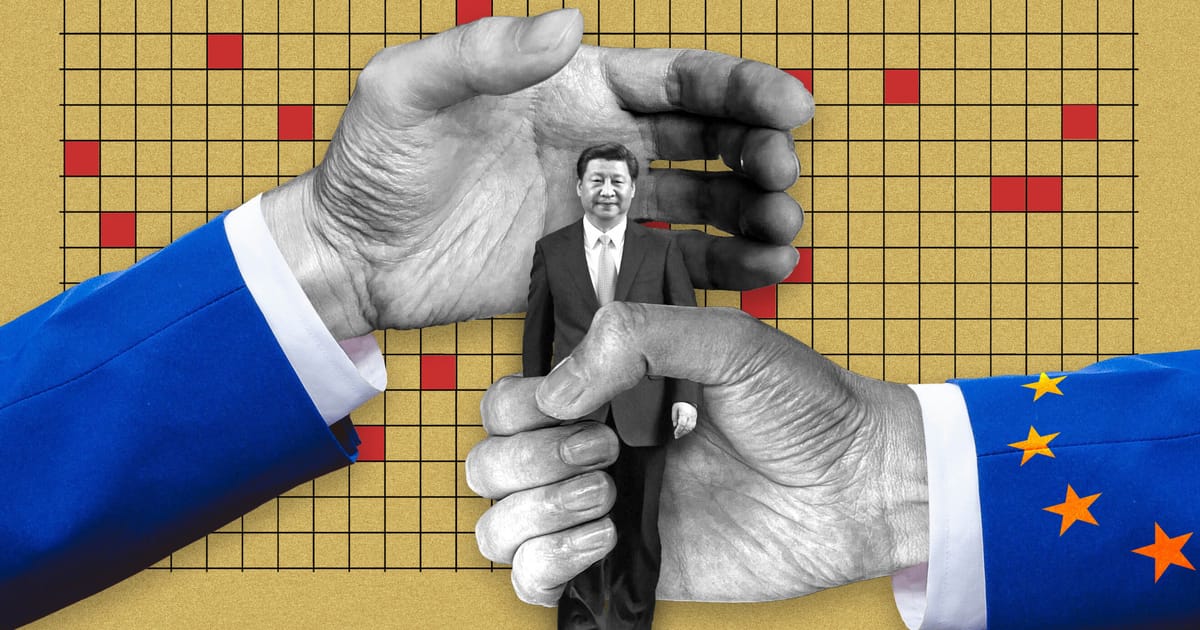Europe’s phoney war with China is at an end. After years of building up an improved arsenal for a trade war, Europe is now showing it is willing to get tough on Beijing.
On Tuesday, EU investigators swooped on the Dutch and Polish offices of Nuctech, a maker of security scanners, in a case that hinges on one of Europe’s longest running grievances with China — lavish state subsidies that help Chinese firms undercut European rivals.
Nuctech was once run by Hu Haifeng, son of President Xi Jinping’s predecessor, Hu Jintao, and China’s reaction was predictably seething. The raid “highlights the further deterioration of the EU’s business environment and sends an extremely negative signal to all foreign companies,” China’s mission to the EU fumed.
The timing of such an inflammatory raid seems significant, ahead of a trip to Europe by Xi next month — his first in five years, taking him to France, Serbia and Hungary — marking a definitive shift in the way that Europe is prepared to tackle its trade problems with China.



This is the best summary I could come up with:
On Tuesday, EU investigators swooped on the Dutch and Polish offices of Nuctech, a maker of security scanners, in a case that hinges on one of Europe’s longest running grievances with China — lavish state subsidies that help Chinese firms undercut European rivals.
For years, Brussels has repeatedly taken an emollient tone with Beijing, seeking ultimately futile dialogue on state subsidies and overcapacity in sectors such as steel, aluminum and green tech, rather than choosing direct confrontation and a tit-for-tat trade war.
Europe’s early attempts to rival Belt and Road were seen as damp squibs, but an internal Commission document obtained by POLITICO says the bloc must now focus more seriously on building footholds in key strategic mining and energy interests in Africa and Central Asia.
Two people familiar with the impending decision said Brussels was close to designating Shein as a “very large online platform” in the coming days, exposing it to extra scrutiny under the bloc’s content moderation law.
In a classic sign of China’s asymmetric approach, shortly after von der Leyen launched her high-profile investigation into made-in-China electric vehicles, Beijing hit Europe’s liquor exports, in a move that seemed particularly tailored to France’s cognac sector.
But despite those threats of retaliation, von der Leyen has little room to keep her powder dry, particularly as she fights to win a second term as Commission president — a move that would require support from France, the main advocate of protecting European industry from China.
The original article contains 1,260 words, the summary contains 244 words. Saved 81%. I’m a bot and I’m open source!